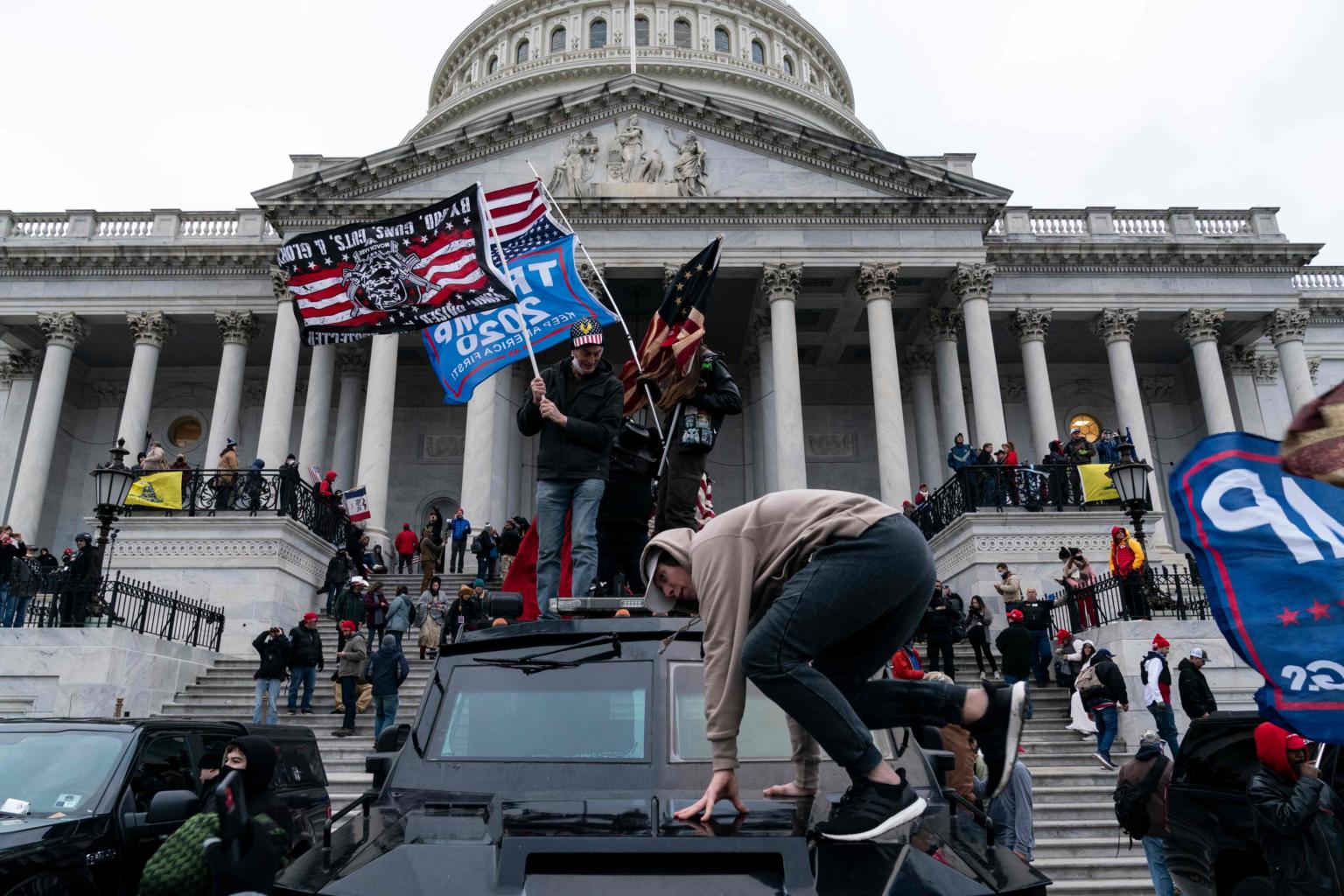FBI director Christopher Wray flags fast-growing white supremacist threat in US
Sign up now: Get ST's newsletters delivered to your inbox

The storming of the Capitol that day, by hundreds of supporters of the former president, left four protesters and one police officer dead.
PHOTO: AFP
Follow topic:
WASHINGTON - There is no doubt that the Donald Trump supporters who attacked the US Capitol on Jan 6 included violent extremists, in some instances racially motivated, who "advocate for the superiority of the white race", Federal Bureau of Investigation (FBI) director Christopher Wray told a Senate hearing on Tuesday (March 2).
His testimony, while not revelatory, was significant in terms of moving the conversation to what may be the beginning of a serious debate on domestic terrorism.
Mr Wray's words were carefully chosen partly because the United States does not have a statute defining domestic terrorism - which means an act of terrorism is treated as a criminal act.
The Ku Klux Klan is not designated a terrorist group, for instance. Many security experts believe that is a drawback in dealing with acts that are clearly terrorist in nature.
It was only the second time the FBI director was speaking in public since Jan 6. The hearing saw Mr Wray offer the most detailed view of the incident and the ongoing investigation, in which the authorities have arrested some 280 people and charged more than 300.
The storming of the Capitol that day, by hundreds of supporters of the former president, left four protesters and one police officer dead.
Mr Wray also very categorically debunked the idea that left-wing radicals acted as provocateurs. "We have not, to date, seen any evidence of anarchist violence extremists or people subscribing to Antifa in connection to the 6th," he said.
Domestic terrorism
Charges so far have included assault on police officers and destruction of property. But the FBI is now moving to more advanced charges like conspiracy, as details emerge of people involved in planning and coordination of the attack, which he referred to as domestic terrorism.
"That attack, that siege, was... behaviour that we, the FBI, view as domestic terrorism," he said.
"We're getting a richer and richer understanding of the different people's motivations," he added. "But certainly... militia, violent extremism and some instances of racially motivated violent extremism."
He added: "When it comes to racially motivated violent extremism, the number of investigations and number of arrests have grown significantly on my watch."
Mr Wray has been director of the FBI since August 2017.
"And the number of arrests, for example, of racially motivated violent extremists who are what you would categorise as white supremacists last year was almost triple the number it was in my first year as director," he said.
White supremacy was the largest chunk of racially motivated violent extremism, which makes up the largest subset of domestic extremism overall, he said.
Lessons from the Capitol
"We are still, unfortunately, at a very nascent stage of this debate because we're still having the definitional debate," Dr Colin Clarke, director of policy and research at The Soufan Centre, a global security consultancy, told The Straits Times.
"Are these domestic terrorists? Are these racially motivated violent extremists? That terminology is not clear across the United States government at large," he said.
"We all agree on what Al-Qaeda and ISIS (the Islamic State in Iraq and Syria) are, but we don't have that same agreement on the threat from the far-right."
Asked if the US is headed for greater radicalism, Dr Clarke said: "No question; that's highly likely given the events of the last four years with Trump and given the importance of the insurrection (at the Capitol)."
The insurrection is going to "serve as a rallying cry", he said. "It was proof of concept that this was all possible."
Extremists in the military
Separately on Tuesday, the Pentagon in a report warned of extremism in the armed forces.
"Military members are highly prized by these groups as they bring legitimacy to their causes and enhance their ability to carry out attacks," said the report, prepared last year at Congress' request.
"In addition to potential violence, white supremacy and white nationalism pose a threat to the good order and discipline within the military."

